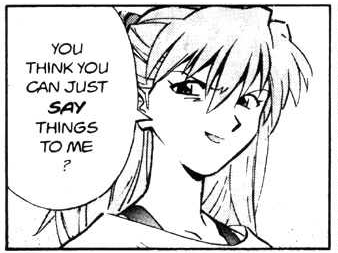Bipolaruchiha - 💜💛💚

More Posts from Bipolaruchiha and Others
What is the difference though? /Gen
so this is coming from what i've learned in hospitals/psych wards/my own experience so it's not perfect but basically, everything with psychosis is rooted in a disconnect from reality while gad is linked to anxiety surrounding the present and future. there is no logical connection with psychotic anxiety and paranoia bc your brain is literally pulling shit out of thin air. bc of that, it is a lot harder to calm down bc you have to find a way to wrap your head around the fact that it isn't real. it can also be practically impossible to do that for some people, meaning the anxiety and paranoia are near constant. the paranoia is often tied to delusions-- so, once again, no reality-- and can be of the wildest shit that don't make sense. for example: someone with gad might be scared someone broke into their house and feel anxious. i get scared that doctors broke into my house to experiment of me and get anxious. same feeling but very different causes. someone with gad might be able to walk around the house and check the locks and calm themselves down. i could do that and still be terrified bc my fear isn't logical.
does that make sense? i can try and explain more if need be!
I see this a lot in leftist circles but mental illness, trauma and abuse will exist with or without capitalism, your “mental illness is a social phenomenon” might be true for your depression and your anxiety but I beg all of you to think about psychotic people, systems and people with personality disorders when you make posts like that. It might be true that we wouldn’t be labeled as mentally ill but we would still need resources to help us cope, there’s still something we would need help coping with and you should focus on making that help available and accessible and free of bigotry for all of us instead of living in a “no mentally ill people” pseudo progressive eugenicist dream.
listen to me. thoughts do not have moral weight. a thought will never hurt anyone. the actions you take because of a thought can hurt yourself or other people, but the thought itself is powerless and there is no such thing as thought crime.
"but i have thoughts about being violent towards people! towards children! surely that makes me dangerous!" are you being violent? for real? with your actions? if not, then you are not actually hurting anyone
"but i have thoughts that are offensive and hurtful! they're bigoted, or they're horribly rude, or they're invalidating to others! i'm a horrible person." and what are you doing with those thoughts, exactly? are you taking bigoted actions, or saying those rude things, or taking steps to actually invalidate people? no? well then. no one is getting hurt. and in the meantime, if it really bothers you, doing things like helping unlearn your biases (both against minorities and just, like, against furries and theatre kids and shit) might help some of those thoughts go away, but sometimes you just get shitty thoughts.
"but i have horrific thoughts about sex!" are you hurting people. are you forcing people to do things they don't consent to. or are you just playing the upsetting possibility in your mind over and over again, and acting like that's even remotely the same thing?
thought. crime. is. not. real. OCD. is. hell. (and anything else that may cause intrusive thoughts.) but it does not define you. your thoughts will always, always come secondary to your actions. you're gonna be fine.
adulthood really does hit you like a fucking truck when you spent all of your teenage years thinking you were gonna kill yourself eventually,
Every person need to be taught disability history
Not the “oh Einstein was probably autistic” or the sanitized Helen Keller story. but this history disabled people have made and has been made for us.
Teach them about Carrie Buck, who was sterilized against her will, sued in 1927, and lost because “Three generations of imbeciles [were] enough.”
Teach them about Judith Heumann and her associates, who in 1977, held the longest sit in a government building for the enactment of 504 protection passed three years earlier.
Teach them about all the Baby Does, newborns in 1980s who were born disabled and who doctors left to die without treatment, who’s deaths lead to the passing of The Baby Doe amendment to the child abuse law in 1984.
Teach them about the deaf students at Gallaudet University, a liberal arts school for the deaf, who in 1988, protested the appointment of yet another hearing president and successfully elected I. King Jordan as their first deaf president.
Teach them about Jim Sinclair, who at the 1993 international Autism Conference stood and said “don’t mourn for us. We are alive. We are real. And we’re here waiting for you.”
Teach about the disability activists who laid down in front of buses for accessible transit in 1978, crawled up the steps of congress in 1990 for the ADA, and fight against police brutality, poverty, restricted access to medical care, and abuse today.
Teach about us.
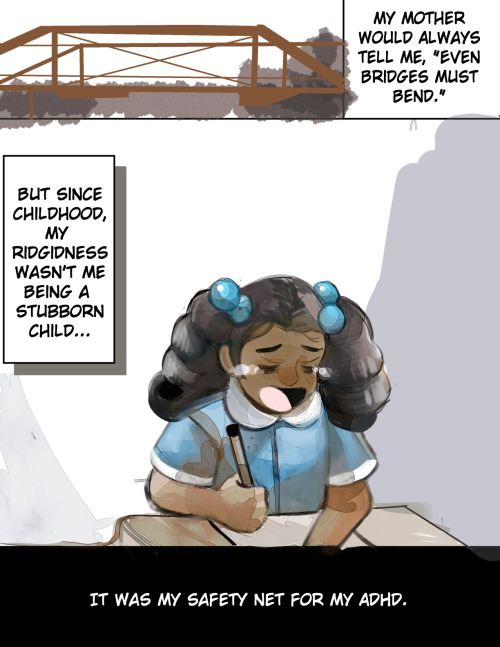
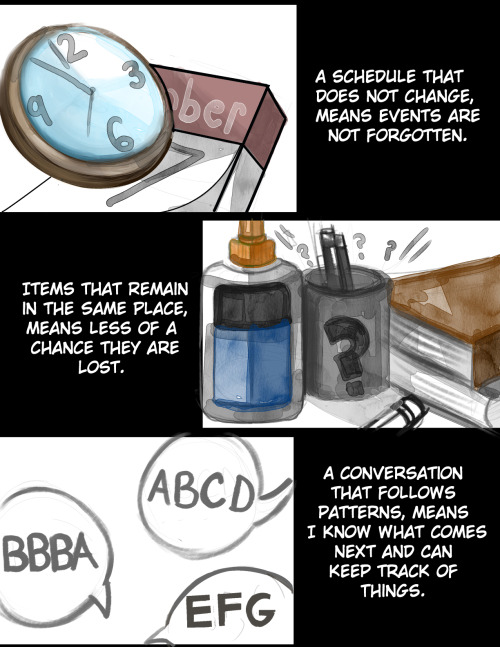
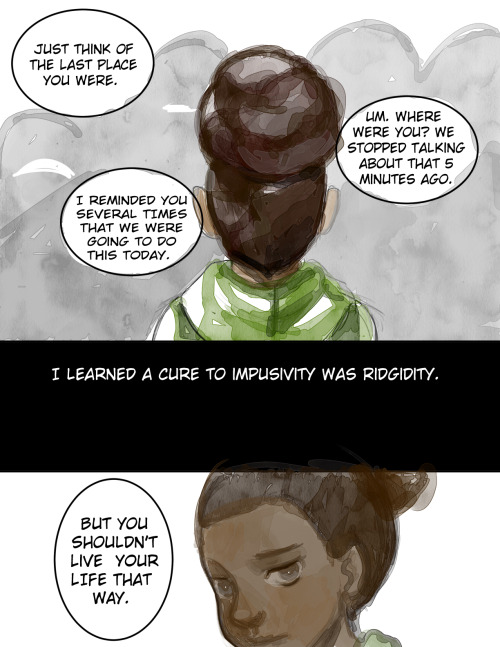
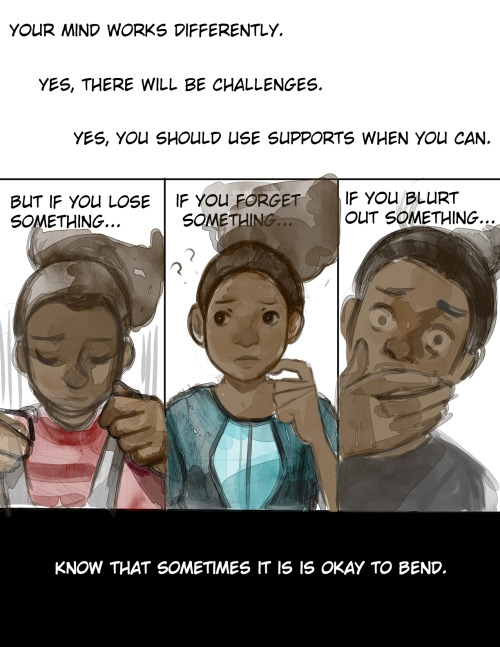
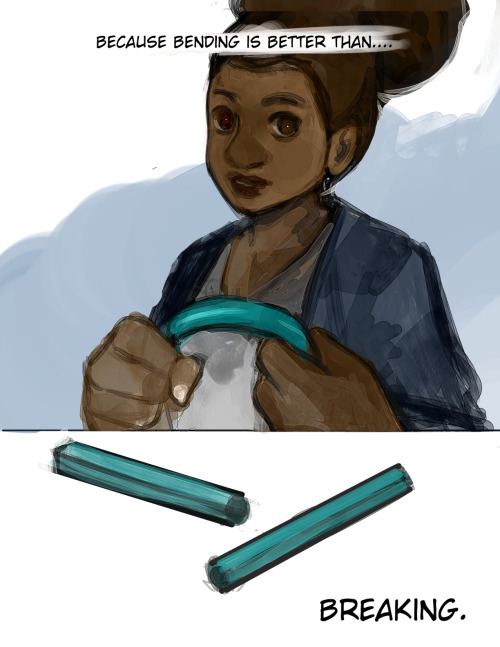
It is still a balance of trying to let go and not be rigid despite knowing this. I am not expecting to reach perfection, but just getting through every day, a day at a time, and knowing that bending is okay.







bipolar pride flag: for when you’re fuckin bipolar baby!💖💖💖💖
ive been wanting to take a swing at making this kind of thing for ages, and since im manic I figured i’d do it!
color explanation under the cut
Keep reading
-
 bookfilledmind liked this · 2 weeks ago
bookfilledmind liked this · 2 weeks ago -
 messy-does-cosmology liked this · 2 weeks ago
messy-does-cosmology liked this · 2 weeks ago -
 wanderinginthecosmos reblogged this · 2 weeks ago
wanderinginthecosmos reblogged this · 2 weeks ago -
 wanderinginthecosmos liked this · 2 weeks ago
wanderinginthecosmos liked this · 2 weeks ago -
 kami-of-wind-blog liked this · 2 weeks ago
kami-of-wind-blog liked this · 2 weeks ago -
 the-one-the-fool liked this · 3 weeks ago
the-one-the-fool liked this · 3 weeks ago -
 celulasarmadas liked this · 1 month ago
celulasarmadas liked this · 1 month ago -
 2sheep300pare liked this · 1 month ago
2sheep300pare liked this · 1 month ago -
 lunar-landinggg liked this · 1 month ago
lunar-landinggg liked this · 1 month ago -
 paranoidbpd liked this · 1 month ago
paranoidbpd liked this · 1 month ago -
 cactus-fruit-cordial reblogged this · 1 month ago
cactus-fruit-cordial reblogged this · 1 month ago -
 cactus-fruit-cordial liked this · 1 month ago
cactus-fruit-cordial liked this · 1 month ago -
 spookyghost-time reblogged this · 1 month ago
spookyghost-time reblogged this · 1 month ago -
 itching-feet-faded-smiles reblogged this · 2 months ago
itching-feet-faded-smiles reblogged this · 2 months ago -
 eheusum reblogged this · 2 months ago
eheusum reblogged this · 2 months ago -
 processedlives liked this · 2 months ago
processedlives liked this · 2 months ago -
 awildandunrulyginger-blog liked this · 2 months ago
awildandunrulyginger-blog liked this · 2 months ago -
 theamazingdalet reblogged this · 2 months ago
theamazingdalet reblogged this · 2 months ago -
 animeterrorist reblogged this · 2 months ago
animeterrorist reblogged this · 2 months ago -
 jrvarsityjackets reblogged this · 2 months ago
jrvarsityjackets reblogged this · 2 months ago -
 badadvicefromabadperson reblogged this · 2 months ago
badadvicefromabadperson reblogged this · 2 months ago -
 brookisnotforu liked this · 3 months ago
brookisnotforu liked this · 3 months ago -
 fatalwamod reblogged this · 3 months ago
fatalwamod reblogged this · 3 months ago -
 sadpugreblogs reblogged this · 3 months ago
sadpugreblogs reblogged this · 3 months ago -
 holycoffeepersona reblogged this · 3 months ago
holycoffeepersona reblogged this · 3 months ago -
 petrenocka reblogged this · 3 months ago
petrenocka reblogged this · 3 months ago -
 general-cerberus liked this · 3 months ago
general-cerberus liked this · 3 months ago -
 sunshine4591 liked this · 3 months ago
sunshine4591 liked this · 3 months ago -
 generallemarc reblogged this · 3 months ago
generallemarc reblogged this · 3 months ago -
 artistformerlyknownas90skid reblogged this · 3 months ago
artistformerlyknownas90skid reblogged this · 3 months ago -
 magicoalverman reblogged this · 3 months ago
magicoalverman reblogged this · 3 months ago -
 sleepingwake reblogged this · 3 months ago
sleepingwake reblogged this · 3 months ago -
 namelessman2 liked this · 3 months ago
namelessman2 liked this · 3 months ago -
 mrcobalt97 reblogged this · 3 months ago
mrcobalt97 reblogged this · 3 months ago -
 vrinnevi liked this · 3 months ago
vrinnevi liked this · 3 months ago -
 fadedblueglory reblogged this · 3 months ago
fadedblueglory reblogged this · 3 months ago -
 fadedblueglory liked this · 3 months ago
fadedblueglory liked this · 3 months ago -
 nutty-megg reblogged this · 3 months ago
nutty-megg reblogged this · 3 months ago -
 dcjokerhs reblogged this · 3 months ago
dcjokerhs reblogged this · 3 months ago -
 dcjokerhs liked this · 3 months ago
dcjokerhs liked this · 3 months ago -
 crepusculona liked this · 3 months ago
crepusculona liked this · 3 months ago -
 bonthenob liked this · 3 months ago
bonthenob liked this · 3 months ago -
 guiltyscapegoat liked this · 3 months ago
guiltyscapegoat liked this · 3 months ago -
 someblog-or-such liked this · 3 months ago
someblog-or-such liked this · 3 months ago -
 kingkracker74 liked this · 3 months ago
kingkracker74 liked this · 3 months ago -
 tiedyed-beard reblogged this · 3 months ago
tiedyed-beard reblogged this · 3 months ago -
 mornington-the-crescent reblogged this · 3 months ago
mornington-the-crescent reblogged this · 3 months ago -
 brosef-von-dudehomie reblogged this · 3 months ago
brosef-von-dudehomie reblogged this · 3 months ago

